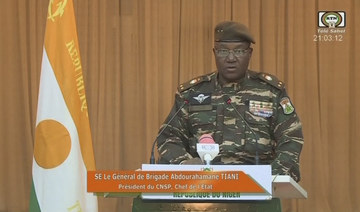
Niger has taken a significant step in reshaping its diplomatic landscape, as five new ambassadors formally presented their credentials in Niamey on Monday, July 14, 2025.
The ceremony, held at the Ministry of Foreign Affairs, Cooperation and Nigeriens Abroad, marked a renewed phase in the country’s foreign policy strategy centred on sustainable development, regional security, and global cooperation.
Receiving the ambassadors, Minister Bakary Yaou Sangaré emphasized the importance of strengthening partnerships in today’s interconnected world. “Niger, a land of dialogue and resilience, is ready to work hand in hand with your nations to build bridges of friendship and solidarity,” he stated.
The new envoys represent a geographically diverse array of nations—Italy, Rwanda, Switzerland, Tunisia, and Burundi—highlighting Niger’s central position in West African diplomacy.
Italian Ambassador Roberto Orlando, who will reside in Niamey, was joined by three ambassadors based in Abuja: Bazivamo Christophe of Rwanda, Patrik Egloff of Switzerland, and Edouard Nduwimana of Burundi. Mounir Jomni, Tunisia’s ambassador, will operate from Ouagadougou.
Ambassador Orlando described Niger as a “strategic crossroads,” while Rwanda’s Christophe Bazivamo praised the country’s potential for collaboration in technological innovation. The envoys expressed optimism and pledged to deepen bilateral ties through concrete initiatives.
This diplomatic expansion comes at a critical juncture for Niger, as the country grapples with regional insecurity and climate-related challenges. Minister Sangaré underlined the need for “active and pragmatic” diplomacy focused on delivering results for the population. “We want partnerships that produce concrete results for our people,” he said, citing priorities such as education, vocational training, and access to clean water.
The arrival of these ambassadors is expected to unlock new avenues for collaboration. Italy could expand investments in agriculture and education, while Switzerland may boost its support for community-based resilience projects. Rwanda and Burundi offer insights from their own development trajectories, and Tunisia could deepen Maghreb-Sahel trade and cultural links.
The ceremony also signalled Niger’s broader aspiration to serve as a regional hub for international cooperation.
With increasing attention from global partners, Niamey is positioning itself as a platform for multilateral engagement in West Africa.
As diplomatic missions gain momentum, the focus now turns to implementation. Concrete actions in the months ahead—such as school construction, teacher training, and trade facilitation—will determine the success of these renewed alliances.
Through this strengthened network of partnerships, Niger aims to foster a more inclusive, prosperous, and resilient future, firmly anchored in solidarity and mutual respect.



